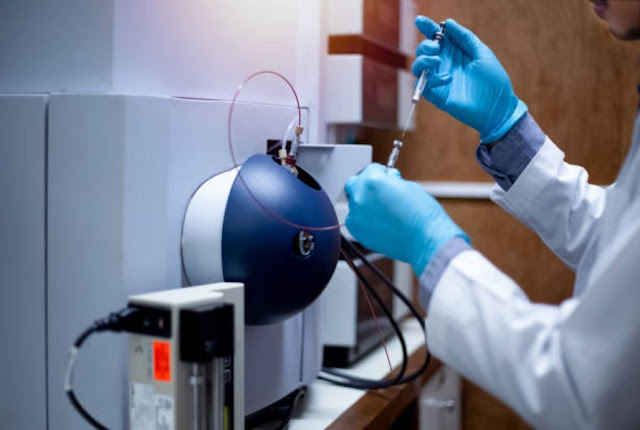Hydration and the Importance of Water

Nourishing Life's Essential Element
Water is often described as the elixir of life, and for good
reason. It is an essential component for maintaining proper hydration and
overall health. Our bodies are primarily composed of water, and it plays a
critical role in a multitude of physiological processes. In this discussion, we
will explore the vital importance of water in maintaining proper hydration and
its impact on overall health.
The Role of Water in the Human Body
Water is indispensable for life, and its significance
extends to virtually every aspect of our well-being. Here are some of the
fundamental roles that water plays in the human body:
- Cellular
Function: Water is a major constituent of all cells in the body. It
serves as the medium for various biochemical reactions and provides a
stable environment for cellular functions. Adequate hydration is essential
for the proper functioning of our cells.
- Temperature
Regulation: Water has a high heat capacity, which means it can absorb
and store heat. As a result, water helps regulate body temperature and
prevent overheating. When we become overheated, we sweat to dissipate heat
through evaporative cooling, a process that relies on water.
- Nutrient
and Waste Transport: Water acts as a transportation system in the
body, carrying essential nutrients to cells and removing waste products.
This facilitates the exchange of nutrients and oxygen between the
bloodstream and cells.
- Digestion
and Metabolism: Proper hydration is vital for digestion and the
absorption of nutrients. It aids in the breakdown of food in the digestive
tract and the circulation of digestive enzymes. Water also plays a role in
metabolic processes, helping to convert food into energy.
- Joint
Lubrication: Water is a major component of synovial fluid, which
lubricates the joints. Adequate hydration is essential for joint health
and preventing conditions like osteoarthritis.
- Brain
Function: Staying well-hydrated is crucial for maintaining cognitive
function. Even mild dehydration can lead to difficulties with
concentration, memory, and decision-making.
- Detoxification:
Water helps flush toxins and waste products out of the body through urine,
sweat, and other excretory processes. Proper hydration supports the body's
natural detoxification mechanisms.
- Skin
Health: Hydrated skin is healthy skin. Adequate water intake can help
maintain skin elasticity and prevent dryness, flakiness, and premature
aging.
The Significance of Hydration
Proper hydration is a cornerstone of overall health and
well-being. Here are some key aspects of why staying adequately hydrated is
crucial:
- Physical
Performance: Dehydration can significantly impair physical
performance. Even mild dehydration can lead to reduced endurance, muscle
cramps, and decreased strength. Athletes, in particular, need to maintain
proper hydration to optimize their performance.
- Cognitive
Function: Dehydration can impact cognitive function, leading to
difficulties with focus, memory, and decision-making. Staying
well-hydrated is essential for maintaining mental clarity and
productivity.
- Digestive
Health: Adequate hydration is necessary for proper digestion. It helps
maintain the flow of digestive enzymes, facilitates the breakdown of food,
and prevents constipation.
- Preventing
Heat-Related Illnesses: Staying hydrated is crucial for preventing
heat-related illnesses such as heat exhaustion and heat stroke, which can
be life-threatening.
- Weight
Management: Drinking water before meals can help control appetite and
reduce calorie intake, which can be beneficial for weight management.
- Joint
Health: Proper hydration is essential for joint lubrication, which
helps prevent joint pain and stiffness.
- Skin
Appearance: Hydrated skin looks healthier, with improved elasticity
and a reduced risk of dryness, flakiness, and premature aging.
Factors Affecting Hydration Needs
Hydration needs can vary from person to person and are
influenced by several factors:
- Climate:
Hot and humid weather increases sweat production, leading to higher fluid
requirements. In contrast, cold and dry climates can lead to increased
water loss through respiration.
- Physical
Activity: Exercise and physical activity increase the body's fluid
needs. The intensity, duration, and type of exercise all influence how
much water should be consumed.
- Age:
Younger individuals generally have higher water needs relative to their
body size due to their higher metabolic rates. On the other hand, older
adults may have a decreased sense of thirst and may need to be more
conscious of staying hydrated.
- Diet:
Certain foods, especially fruits and vegetables, have high water content
and can contribute to overall hydration. Additionally, a diet high in salt
can increase fluid requirements.
- Health
Conditions: Certain medical conditions, such as kidney disease,
diabetes, and cystic fibrosis, can impact fluid balance and hydration
needs. Medications may also affect hydration.
Recognizing Dehydration
It is essential to recognize the signs of dehydration to
address the issue promptly. Common signs and symptoms of dehydration include:
- Thirst:
Thirst is the body's natural signal that it needs water. It is one of the
initial signs of dehydration.
- Dark
Urine: Dark yellow or amber-colored urine is a sign of concentrated
urine, which is a common indicator of dehydration. Light, pale yellow
urine is typically a sign of proper hydration.
- Dry
Mouth and Dry Skin: Dry mouth and dry or flaky skin are common signs
of dehydration.
- Fatigue:
Dehydration can lead to feelings of tiredness and low energy.
- Dizziness
and Lightheadedness: Dehydration can cause dizziness and
lightheadedness, often accompanied by a rapid heart rate.
- Headache:
A headache can be a symptom of dehydration, as the brain temporarily
contracts when there is not enough water to support its normal functions.
- Reduced
Urination: A significant reduction in urination or dark urine is
indicative of dehydration. Increased thirst with decreased urination may
signal a problem.
- Muscle
Cramps: Dehydration can lead to muscle cramps and spasms, especially
during exercise.
Strategies for Staying Hydrated
To maintain proper hydration and support overall health,
here are some practical strategies:
- Drink
Water Regularly: Make it a habit to drink water throughout the day.
The "8x8 rule" (eight 8-ounce glasses of water a day) is a
simple guideline, but individual water needs vary, so listen to your
body's thirst signals.
- Carry
a Reusable Water Bottle: Carrying a reusable water bottle makes it
convenient to drink water wherever you are. This can serve as a visual
reminder to stay hydrated.
- Monitor
Urine Color: Check the color of your urine. Light yellow or pale
straw-colored urine is a sign of proper hydration, while dark urine may
indicate dehydration.
- Adjust
for Physical Activity: Increase your fluid intake when you are
physically active, especially in hot and humid conditions. Be mindful of
your sweat rate and aim to replace lost fluids.
- Incorporate
Hydrating Foods: Consume foods with high water content, such as fruits
(e.g., watermelon, cucumbers, and oranges) and vegetables (e.g., lettuce,
celery, and zucchini).
- Limit
Dehydrating Beverages: Reduce the consumption of dehydrating beverages
like caffeinated drinks and alcohol. They can increase water loss and
contribute to dehydration.
- Avoid
Overconsumption: While it's important to stay hydrated, excessive
water intake (known as water intoxication) can lead to hyponatremia, a
condition characterized by low sodium levels in the blood. Balance is key.
- Pay Attention to Signs of Dehydration: Be aware of the signs and symptoms of dehydration, and take action if you notice them.
Conclusion
Water is the elixir of life, and its importance in
maintaining proper hydration and overall health cannot be overstated. Staying
well-hydrated is essential for supporting a wide range of bodily functions,
from cellular processes to cognitive function, digestion, temperature
regulation, and joint health. Dehydration can lead to a multitude of health
issues, so it's essential to make hydration a daily priority. Listen to your
body's signals, drink water regularly, and adapt your fluid intake to your
individual needs, especially in response to physical activity and environmental
conditions. By doing so, you can nourish your body's essential element and
promote well-being from within.


